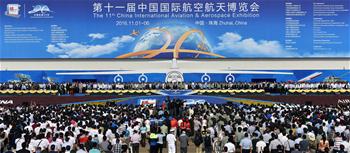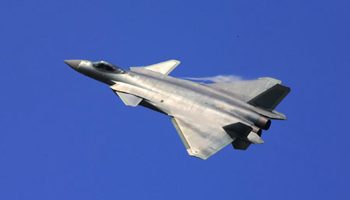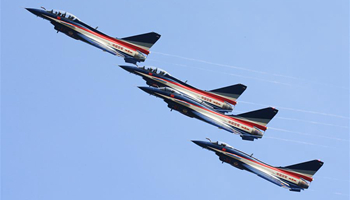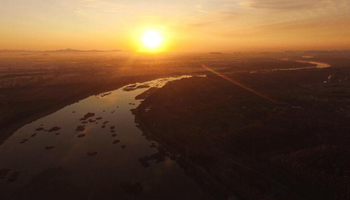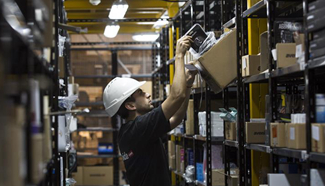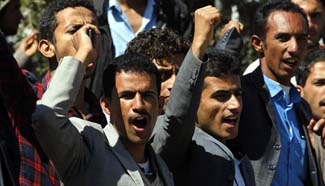UNITED NATIONS, Nov. 1 (Xinhua) -- China is opposed to politicization and double standards on human rights issues, and rejects interference in the internal affairs of states under the pretext of human rights, A senior Chinese diplomat said here Monday.
Wu Haitao, the deputy Chinese permanent representative to the United Nations, made the remarks as he was taking the floor at the general debate at the Third Committee of the 71st session of the UN General Assembly. The Third Committee is in charge of social, humanitarian affairs and human rights issues that affect peoples all over the world.
"We must uphold the principle of equality," he said. "Exchanges and cooperation in the field of human rights must be strictly in line with the purposes and principles of the UN Charter and fundamental norms governing international relations, respecting the sovereignty, independence and territorial integrity of states," he said.
"Dialogue and cooperation should be conducted on the basis of equality, and mutual learning pursued in an open and inclusive manner," he said. "We should explore effective means for human rights cooperation by deepening mutual trust."
"We must advance inclusive development," he said. "Development is the basis for the promotion and protection of human rights."
"Developed countries are duty-bound to honor their ODA (official development assistance) commitments in earnest," he said.
"We must respect the choice made by the people," he said. "There is no universally applicable development pathway and human rights standards."
Disparate country realities entail different ways and means of human rights protection, he said. "We should proceed from reality and act upon the will of the people. Respect should be given to countries' autonomous choice of human rights protection modalities that are tailored to their national circumstances."
Efforts should be also made to strike a balance between the two categories of human rights, he said. "Economic, social and cultural rights, and the right to development, on the one hand, and civil and political rights, on the other, are inter-dependent and equally important."
"All kinds of human rights should be advanced in a balanced and coordinated fashion," Wu said. "Developed countries need to accord more importance to the promotion and protection of economic, social and cultural rights, and recognize the right to development."
Given the intricate interlink between human rights and the values, historic and cultural traditions as well as political and economic systems of various countries, human rights must be pursued in light of the specific conditions of countries and their peoples' aspirations, he said.
"China has found its own path of human rights development by combining the principle of universality of human rights with its national conditions, and has achieved remarkable results," he said.
"We will work to raise people's livelihood and quality of life across the board, improve the systems of public services and ensure equal access to such services," Wu said.
"We will spare no effort to lift out of poverty all those who are still living under the current poverty line," he said.
"We will defend citizens' personal rights and dignity, promote judicial justice, guarantee litigants the right to fair trial, and enable full realization of the rights to information, participation, expression and oversight," he said.
"We will expedite the development of ethnic minorities and regions inhabited by them, eliminate gender discrimination, strengthen the protection of rights and interests of minors, actively respond to aging and improve services for persons with disabilities," he said.
China will foster a culture featuring respect for human rights through education and a nationwide campaign to raise law awareness, he said.
"We will fulfill our obligations under human rights treaties, participate fully in the work of the UN human rights mechanisms, engage in extensive human rights dialogue, exchanges and cooperation, and provide technical assistance to other developing countries in need," he added.




